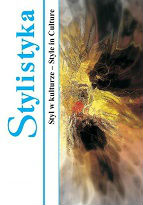MIĘDZY SCJENTYZMEM A KOGNITYWIZMEM: LINGWISTYKA NA ROZDROŻU PARADYGMATÓW METODOLOGICZNYCH
On the borderline between scientism and cognitivism: linguistics at the crossroads of methodological paradigms
Author(s): Irena SzczepankowskaSubject(s): Language studies, Language and Literature Studies, Theoretical Linguistics, Studies of Literature
Published by: Uniwersytet Opolski
Keywords: paradigm’s dominance in linguistics; scientism vs. cognitivism; interdisciplinary approach in the study of language
Summary/Abstract: The paper diagnoses the condition of the contemporary linguistics from the viewpoint of “the power of discourse” and, specifically, the competition of “paradigms” (according to T. Kuhn’s definition) determining the object, goals and methods of research and the manner of presenting knowledge in the discursive community of linguists. Identifying the basic difficulties hindering a change of a paradigm or at least a reconstruction of the hierarchy of the prevalent methodologies in the contemporary linguistics is the aim of the discussions presented in the paper. The author states that linguistics has been at the crossroads of opposite trends, which – to simplify the issue slightly – can be linked with structuralism on the one hand and cognitivism on the other, for some time now. The former paradigm is related to scientism, which imposes the status of an exact, autonomous science limited to grammar on linguistics; the latter one prefers an interdisciplinary approach with the objective of integrating the study of language with other fields of knowledge, and primarily of the operation of the human brain and the process of communication within a community with the use of linguistic symbols, set for linguists. The author proves that the competition of diverse theories and research methods is a manifestation of the desired creativity and openness of linguistics as a discipline within humanities. Negative effects of a given paradigm’s dominance are concerned more with evaluating research works according to traditional criteria imposed by exact sciences.
Journal: Stylistyka
- Issue Year: 2016
- Issue No: XXV
- Page Range: 145-160
- Page Count: 16
- Language: Polish

